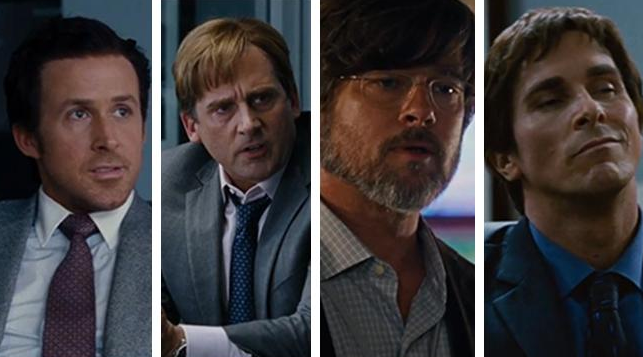Over the holidays millions of people went to the theatre multiple times to see one film: Star Wars: The Force Awakens. However, there are at least two movies that are more important (at least here in North America).
One of them is the movie adapted from Michael Lewis’ book of the same name: The Big Short. According to IMDB, The Big Short is about “Four outsiders in the world of high-finance who predicted the credit and housing bubble collapse of the mid-2000s decide to take on the big banks for their lack of foresight and greed.” However, it’s much more than that. This is, of course, a true story. Millions of people in North America and around the world lost jobs, their homes and their entire life savings.
In an interview with Variety, movie director and screenwriter Adam McKay said this when asked how the banking world has reacted to the film,
It started when we were filming. We’d book a location and then be told, “No, no, they pulled the plug. The husband’s a banker” or “the wife’s dad is a huge banker.” At first it was little prickly things like that. And then as the film opened in a limited run (on Dec. 11), there were six or seven op-ed pieces in the world of economics and finance, crossfire arguments. The Wall Street Journal reviewer liked the film but an op-ed piece took a swipe at us, then Paul Krugman responded to the Journal piece, then Forbes responded to Krugman, then a Libertarian columnist really liked this movie. … It’s encouraging. We made this movie to get the conversation going. Even in the last few Q&As, there’s been — well, I’d say a little arguing, but not yelling. It’s a good sign. This movie was designed to stir the pot. And even more than financial people, I’m glad that “regular” people are talking about it. What’s amazing about this story is that it’s still happening.
